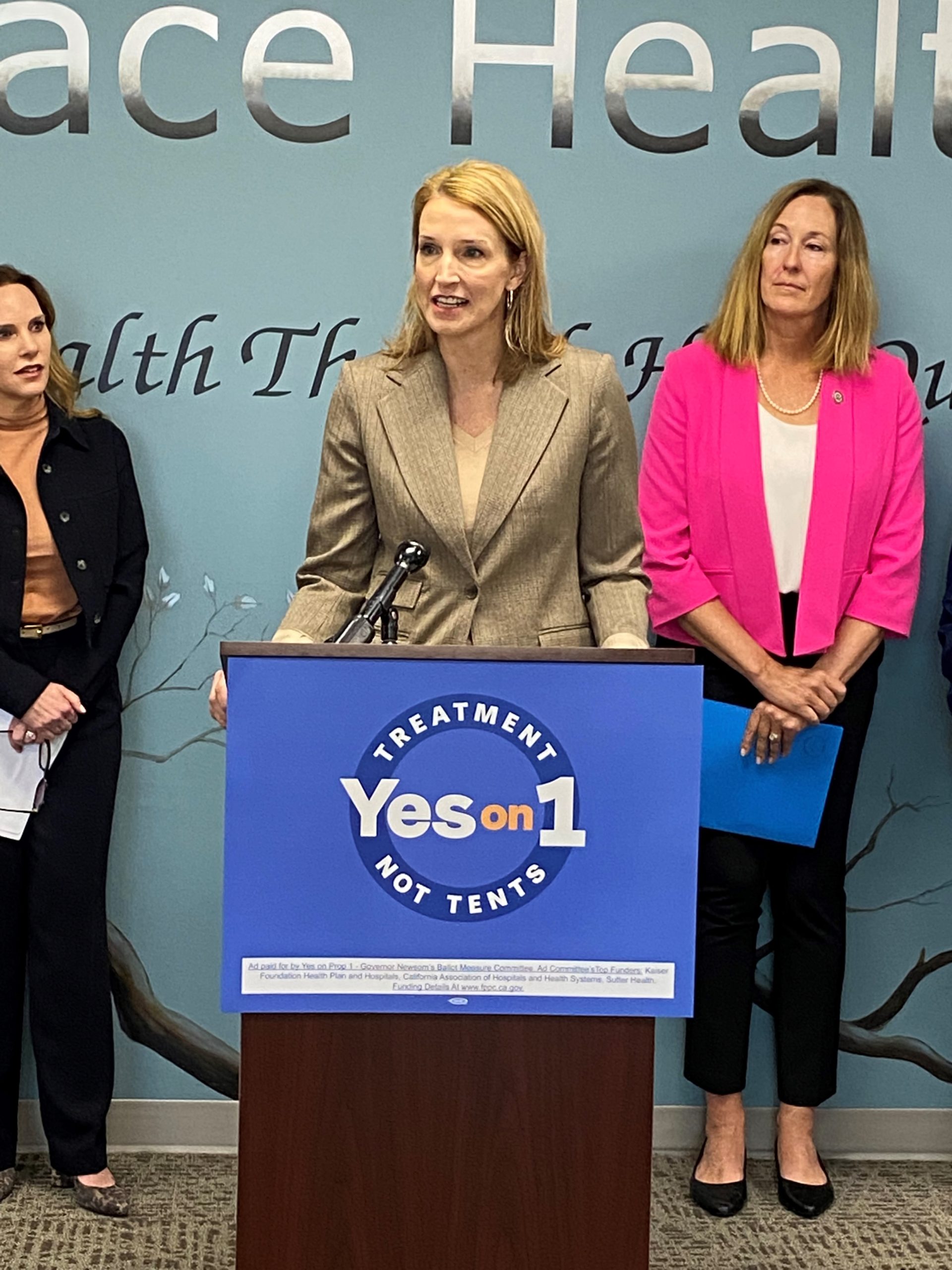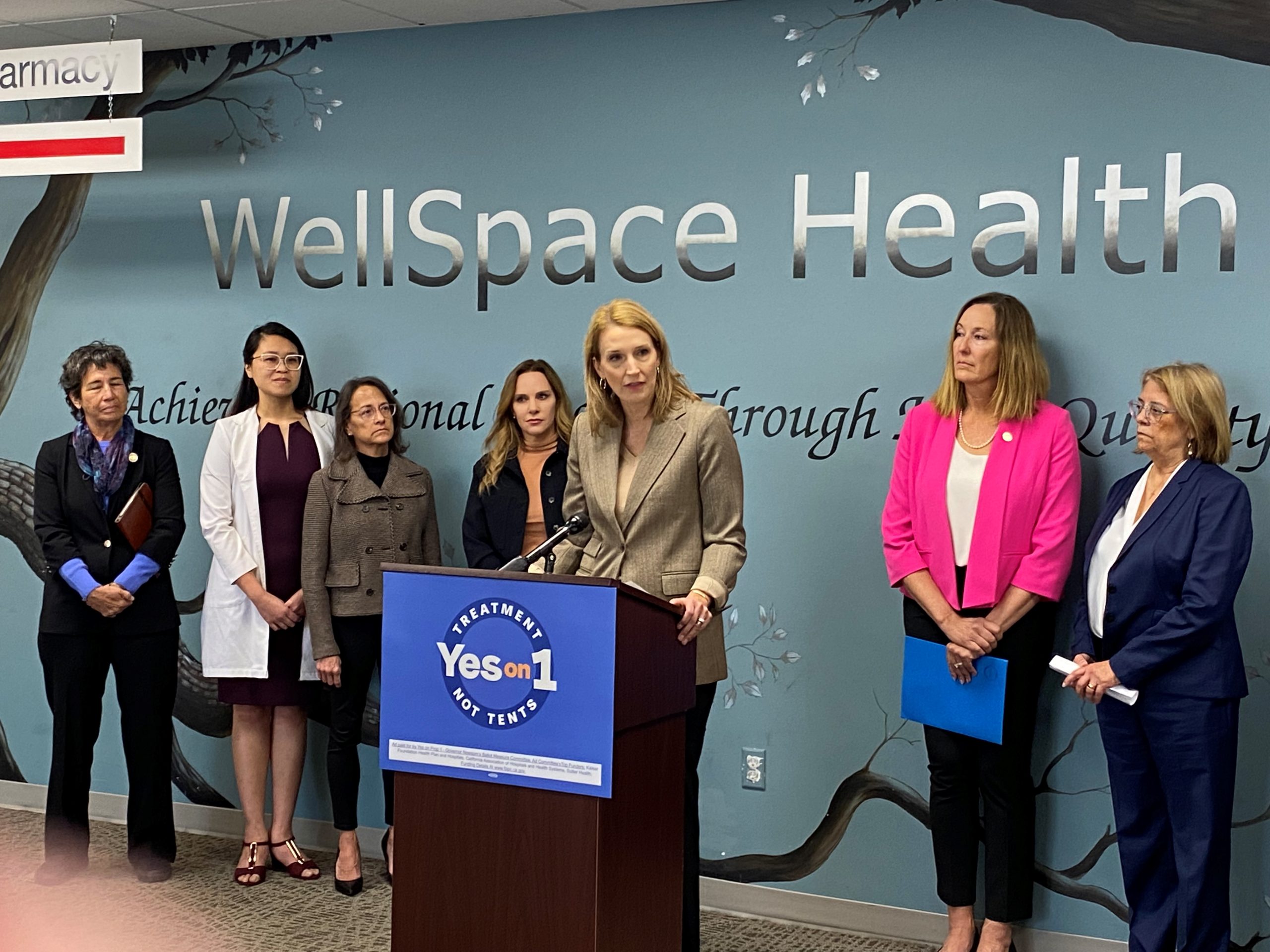California Chamber of Commerce President and CEO Jennifer Barrera underscored support for Proposition 1 during an event assembled by women business, health care, and political leaders last week.

The CalChamber endorses Proposition 1 because it will provide the resources to help communities across the state recover from what has been an unprecedented mental health and homelessness crisis, especially over the last few years, Barrera said at the event.
The opioid crisis, COVID-19 pandemic and increased incidence of homelessness have had dire impacts on the state’s communities and businesses, she said.
The January 16 event featured remarks from Assemblymembers Cecilia Aguiar-Curry and Jacqui Irwin, and state Senator Susan Eggman. California Hospital Association CEO Carmela Coyle; Sutter Health Senior Vice President and Chief External Affairs Officer Grace Davis; National Alliance on Mental Illness (NAMI) California Executive Director Jessica Cruz; and Dr. Anna Yap, California Medical Association, also spoke at the event.
Proposition 1 is supported by more than 80 statewide and local organizations ranging from elected officials, public safety officers, first responders, labor unions, community-based organizations, business leaders, homeless service providers and veterans organizations.
Some of the state’s women leaders supporting the measure include Los Angeles Mayor Karen Bass, San Francisco Mayor London Breed, the legislative women’s caucus, activist Dolores Huerta, and Senator Eggman and Assemblymember Irwin, who authored portions of the reform in the Legislature last year.

Modernizes California’s Mental Health Care System
If approved by voters, Proposition 1 will authorize $6.38 billion in general obligation bonds to finance, among other things, more treatment beds and supportive housing units for Californians with severe behavioral health challenges and substance use disorders.
In the late 1950s, California had the capacity to treat 37,000 patients in state mental health hospitals, but because of actions taken by politicians of bygone eras, those beds were closed and never replaced—leaving some of the most acute mental health patients on the streets and in tents, not in psychiatric beds where they could get the help they need.
Today, more than 10,000 California veterans, many of whom are suffering from severe post-traumatic stress disorder (PTSD), are homeless. Proposition 1 would provide $1 billion to serve these veterans who are experiencing homelessness, mental health and substance abuse issues.
Proposition 1 would create supporting housing settings where more than 11,000 Californians with the severest mental health needs can live and recover.
The initiative has strict accountability measures, including mandatory audits, to ensure that funds are spent as promised.
Proposition 1
Proposition 1 has two major components related to providing mental health care and drug/alcohol treatment, and addressing homelessness. The proposition:
• Changes the Mental Health Services Act (MHSA) that was passed by voters in 2004 to require that counties spend more of their MHSA money on housing and personalized support services like employment assistance and education.
• Approves a $6.4 billion bond to build (1) more places for mental health care and drug or alcohol treatment and (2) more housing for people with mental health, drug, or alcohol challenges.
The state Legislative Analyst’s Office (LAO) estimates the cost to repay the bond would be about $310 million annually over a 30-year period. Proposition 1 uses bond funds to give up to $4.4 billion to the state program that builds more places for mental health care and drug or alcohol treatment. The types of places that would be built with bond funds would depend on future decisions by the state.
The proposition also requires that at least $1.5 billion of the $4.4 billion go to local governments and tribes.
Another $2 billion would go to the state program that grants money to local governments to turn hotels, motels, and other buildings into housing and construct new housing. Local governments would get either grants or loans from the state. The housing added by the measure would be for people who are (1) experiencing homelessness or at risk of becoming homeless and (2) have mental health, drug, or alcohol challenges.
Just over half of the $2 billion would be set aside for veterans.
For more information on Proposition 1, click here.

